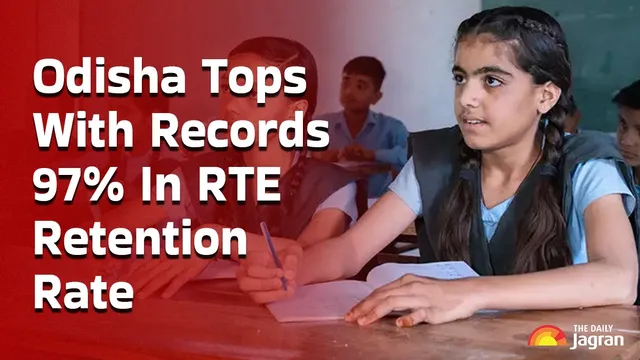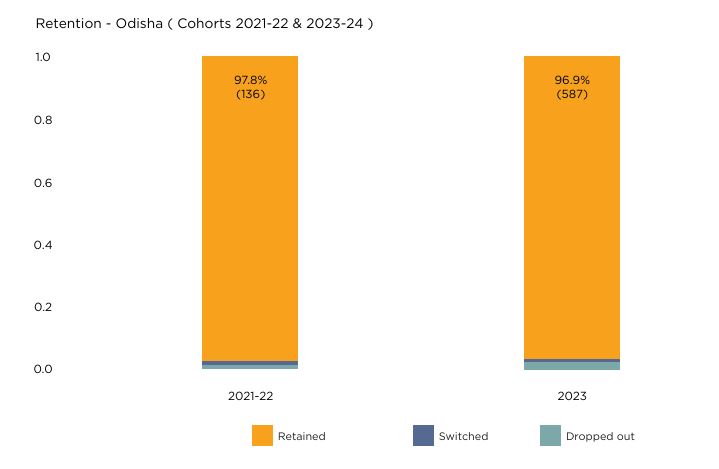- By Sarju Saran Tiwari
- Wed, 10 Sep 2025 05:43 PM (IST)
- Source:JND
Retention Survey 2025: A new report has found that four states, Chhattisgarh, Odisha, Andhra Pradesh and Uttarakhand, recorded a 91 per cent retention rate among students, while Odisha led with 97 per cent retention under the Right to Education (RTE) Act during the academic year 2023-24.
The annual Right to Education (RTE) Retention Report, published by Indus Action, an NGO working in the education sector, highlighted that children from disadvantaged groups have continued their schooling despite digital gaps and learning losses after the pandemic.
"These findings complement the National Education Policy 2020 vision of universal quality education. The 87 per cent inclusion rate in school activities and 98 per cent positive peer interactions demonstrate that RTE isn't just about access-it is about fostering the social integration and holistic development that NEP emphasises," the NGO said in a statement.
Odisha Leads With 97% Retention:
Across the States, Odisha emerged as the top performer with records 97 per cent rentention rate, benefiting nearly 24,834 students.
Key Highlights:
- Odisha demonstrates a 97% retention rate.
- Despite this positive trend, Odisha recorded the highest dropout rate among all states, with 2% of the 2023–24 cohort dropping out.
- Of the 19 total dropouts across the survey, 15 occurred in Odisha. 14 dropouts were attributed to long travel distances. Among these, 11 were girls, and most belonged to the EWS category.
"The survey reveals that Odisha has achieved an impressive 97 pc retention rate for students admitted under the RTE provision. This exceptional performance underscores the state's implementation strategy's effectiveness and dedication to ensuring that children from disadvantaged backgrounds gain access to quality education and continue their academic journey," he added.
"These findings underscore the critical importance of addressing financial barriers that continue to challenge families despite policy provisions," said Tarun Cherukuri, founder and CEO of Indus Action.
Challenges Persist In Digital Age:
"While we celebrate the 91 per cent retention rate as a testament to the potential of RTE's impact, if we continue to believe in an inclusive society, we must also acknowledge that true educational equity requires reducing the harmful stress families face due to financial burdens of schooling expenses," he added. The report noted that challenges persist in the digital age.
While 81 per cent of the RTE students form friendships across socio-economic lines, questions remain about their access to digital learning tools and technology-enhanced education that increasingly defines quality schooling.
"Despite policy frameworks, 61 per cent of families still face school-related expenses, with 57 per cent finding these 'quite difficult' to manage. This financial stress threatens the program's sustainability and highlights the need for comprehensive fee reimbursement mechanisms," the statement said.


